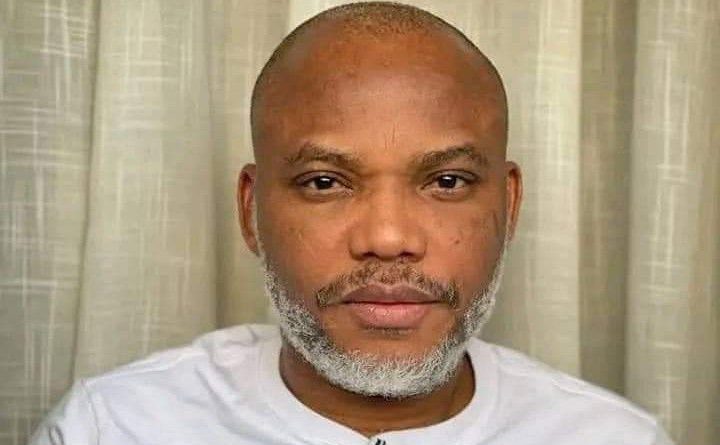As you pardoned Maryam Sanda, release Nnamdi Kanu – Lawyer tells Tinubu
Activist lawyer, Maduabuchi Idam, has urged President Bola Tinubu to free Nnamdi Kanu, leader of the Indigenous People of Biafra, IPOB, just like he granted Maryam Sanda presidential pardon.
In 2017 Maryam Sanda was convicted for the murder of her husband, Bilyaminu Bello, whom she stabbed in the chest after allegedly finding nude photos of another woman on his phone.
Her defence that her husband sustained the chest injury after falling on a shisha bottle at their Abuja home was dismissed by the trial court and the Court of Appeal, which upheld her conviction.
Idam urged the President to also extend clemency to all those arrested in connection with the Biafra agitation.
In a statement he issued, Idam said: “Pursuant to Section 175 of the Constitution of the Federal Republic of Nigeria, 1999 (as amended), the President possesses the constitutional prerogative to grant a pardon to any person who has been convicted of an offence created under a federal enactment. This power, however, is to be exercised after due consultation with the Council of State, as expressly provided by the Constitution.
“By virtue of the above constitutional provision, the President is legally justified in the exercise of his powers to grant pardons, even though such action remains morally challenging. It is hard to insist that she should be executed having been convicted while it remains concerning to have her pardoned as the president has done.
“Provided that the council of states recommends to Mr. President, a pardon can only be granted after conviction; to grant a pardon before conviction would amount to interference with the judicial process.”
(See State v. Lucky Igbinedion (2014) LPELR-22993(CA)).
“Similarly, in Lakanmi v. A-G (Western Region) (1971) 1 UILR 201, the court held that executive powers, including prerogative of mercy, cannot override or pre-empt the judicial process.
“However, under Section 174 (1) (c) of the Constitution, the Attorney-General of the Federation (AGF) shall have power —to discontinue, at any stage before judgment is delivered, any such criminal proceedings instituted or undertaken by him or any other authority or person.
“This power of withdrawal described as “nolle prosequi” confers on the AGF, the right to discontinue prosecution of a defendant at any stage before judgement.
“Under section 211 of the constitution, the Attorney General of the State enjoys similar power. See Ilorin Vs. State (1983) 2 SC 155; (1983) 1 SCNLR 94.
“Interestingly, while the president lacks the constitutional authority to withdraw or order the release of a defendant standing trial in a subsisting matter in court, he can direct the AGF to do so.
“Mr. President is hereby urged to extend the olive branch of mercy to Mazi Nnamdi Kanu and all persons arrested and detained in connection with the Biafra agitation by directing the AGF to do the needful.
“Their continued detention has neither advanced the cause of peace nor served any meaningful national interest.”
